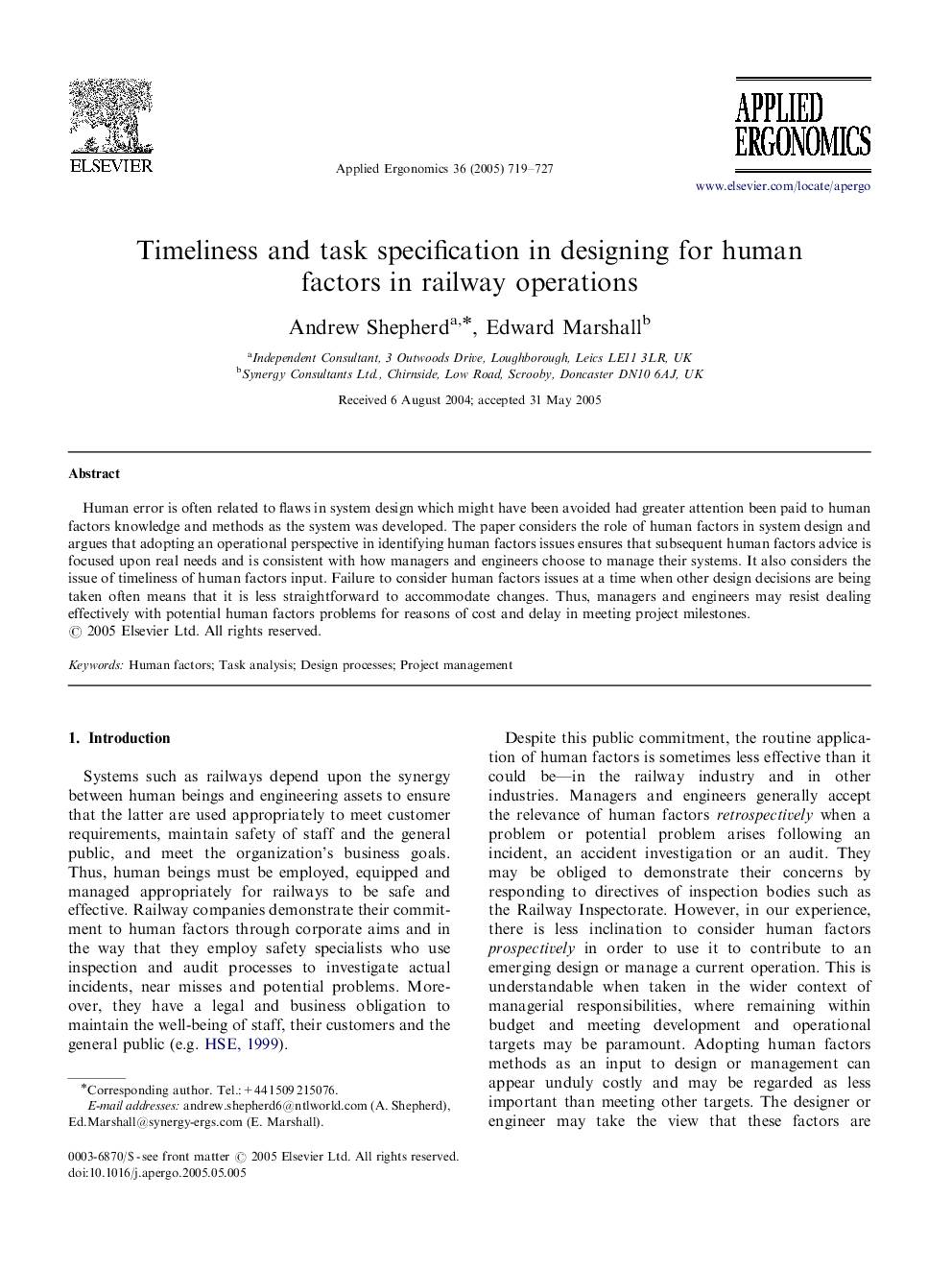| Article ID | Journal | Published Year | Pages | File Type |
|---|---|---|---|---|
| 10366899 | Applied Ergonomics | 2005 | 9 Pages |
Abstract
Human error is often related to flaws in system design which might have been avoided had greater attention been paid to human factors knowledge and methods as the system was developed. The paper considers the role of human factors in system design and argues that adopting an operational perspective in identifying human factors issues ensures that subsequent human factors advice is focused upon real needs and is consistent with how managers and engineers choose to manage their systems. It also considers the issue of timeliness of human factors input. Failure to consider human factors issues at a time when other design decisions are being taken often means that it is less straightforward to accommodate changes. Thus, managers and engineers may resist dealing effectively with potential human factors problems for reasons of cost and delay in meeting project milestones.
Related Topics
Physical Sciences and Engineering
Computer Science
Human-Computer Interaction
Authors
Andrew Shepherd, Edward Marshall,
